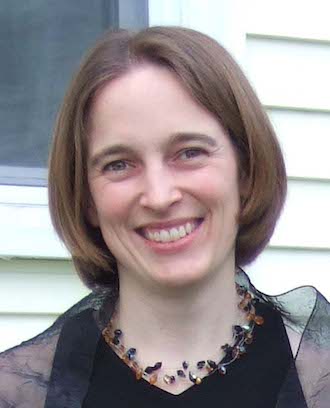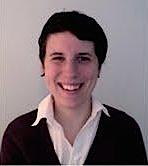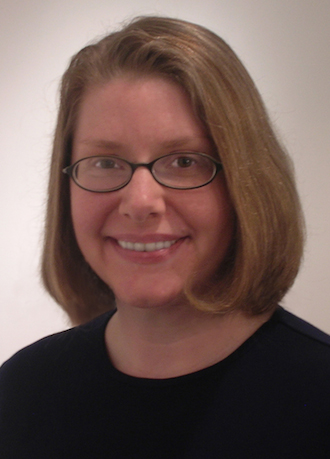Tending the congressional flock: Study examines House and Senate chaplain prayers
Brandeis Professor Wendy Cadge breaks down components of prayers by congressional chaplains

From Left: Congressional chaplains Richard Halverson, Lloyd John Ogilvie, Barry Black, James Ford and Daniel Coughlin
 |
| Wendy Cadge |
If their prayers before the House and Senate are any indication, congressional chaplains have a good deal of faith in the bible verse that says, “Ask, and it shall be given you.”
Researchers from Brandeis University and Clemson University studied 200 prayers offered by chaplains to Congress between 1990 and 2010 and found the prayers included a petition – or a request for something – to God 96 percent of the time.
Wendy Cadge, professor of sociology at Brandeis, Laura R. Olson, professor of political science at Clemson, and Brandeis graduate student Margaret Clendenen examined prayers offered by five congressional chaplains in the House and Senate in 1990, 2000 and 2010: Senate chaplains Richard C. Halverson (in office from 1981-1994), L. John Ogilvie (1995-2003), and Barry C. Black (who has been in office since 2003), and chaplains to the House of Representatives James D. Ford (1979-2000), and Daniel P. Coughlin (2000-2001). Their results were published in the Journal of Church and State in October.
 |
| Margaret Clendenen |
Among four prayer components recorded in the research, asking something of God was by far the most common, appearing in 191 of the 200 prayers. Offering thanks to God, meanwhile, was something they all did regularly, but not nearly as frequently, occurring in 44, or 22 percent, of the prayers. They praised God 17 percent of the time, and "bore witness" 71 percent of the time.
Those figures are just one small piece of the research. Cadge took some time to answer questions from BrandeisNow about congressional chaplaincies and to take a closer look at the research.
How did these chaplaincies come to exist, and have they ever come under
 |
|
Laura Olson |
scrutiny?
The U.S. Congress has had chaplains since 1774 when Jacob Duche, rector of Christ Episcopal Church in Philadelphia, was recruited to offer prayers before the First Continental Congress. These chaplains have often been controversial. In the 1850s, Congress received a number of petitions calling for the elimination of the positions on the grounds of the separation of church and state. In 1983, the Supreme Court ruled in Marsh v. Chambers to maintain the practice of legislative prayer on the basis of historical custom.
Today, Senate and House chaplains hold full-time jobs. Each has a staff and is a formal officer of the Congressional body he serves. Congressional chaplains pray at the beginning of each congressional day, provide support to Congressional staff and do significant educational work.
Your research examined opening prayers of congressional sessions from 1990 to 2010. What are some of the trends you found?
Although all five chaplains in our research invoked the name of God, we found few other commonalities across either the style or content of their prayers. Most petitioned and thanked God while mixing pastoral and prophetic messages in ways not clearly connected to current events, election cycles, or levels of congressional polarization. Whereas Senate chaplains shifted from largely Christian to more religiously neutral prayer language between 1990 and 2010, House chaplains did not.
Were there any prayer components particularly unique to certain chaplains?
We argue that each congressional chaplain develops a distinctive prayer style; this distinctiveness likely reflects both personal preference and a relative lack of clear rules and guidelines in place for the conduct of congressional chaplains.
For example, looking at the three Senate chaplains we studied, each had components and substance in their prayers distinct from the others.
Richard C. Halverson quoted a Bible verse in almost every prayer (97 percent), spoke regularly of Congress (47 percent), and often mentioned senators and staff by name as he tended his flock. He often reminded senators of God and of what he perceived to be God’s presence in their lives and the ongoing life of the nation.
L. John Ogilvie, petitioned God in prayer and reflected regularly on congressional issues in ways that seem intended to influence senators’ work together. Ogilvie conceived of God as actively involved in the life of the Senate and reminded senators of their responsibilities before God and the nation in providential terms.
Barry C. Black’s personal style has emphasized praying for Congress and petitioning God—often for guidance and wisdom for the senators— in every prayer we analyzed. Black refers to policy issues less often than his predecessors. He never quoted the Bible and mentioned Jesus only once, in reference to the Christmas story. These differences reveal a shift from the more explicitly Judeo-Christian approach of Halverson and Ogilvie toward more religiously neutral language.
How does their behavior compare to chaplains in other roles?
Chaplains are present in the military, healthcare organizations, prisons, airports and a range of other settings. Most chaplains care for those with whom they work and pray at least occasionally, though the ways they pray vary by context as well as by individual. Military chaplains are those mostly likely to pray publicly, as congressional chaplains do, though no one we know has analyzed their prayers.
Categories: Humanities and Social Sciences, Research





